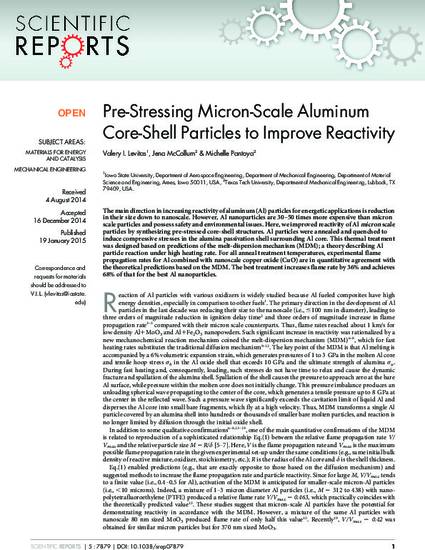
The main direction in increasing reactivity of aluminum (Al) particles for energetic applications is reduction in their size down to nanoscale. However, Al nanoparticles are 30–50 times more expensive than micron scale particles and possess safety and environmental issues. Here, we improved reactivity of Al micron scale particles by synthesizing pre-stressed core-shell structures. Al particles were annealed and quenched to induce compressive stresses in the alumina passivation shell surrounding Al core. This thermal treatment was designed based on predictions of the melt-dispersion mechanism (MDM); a theory describing Al particle reaction under high heating rate. For all anneal treatment temperatures, experimental flame propagation rates for Al combined with nanoscale copper oxide (CuO) are in quantitative agreement with the theoretical predictions based on the MDM. The best treatment increases flame rate by 36% and achieves 68% of that for the best Al nanoparticles.
Available at: http://works.bepress.com/valery_levitas/82/

This article is published as Levitas, Valery I., Jena McCollum, and Michelle Pantoya. "Pre-stressing micron-scale aluminum core-shell particles to improve reactivity." Scientific reports 5 (2015). 10.1038/srep07879